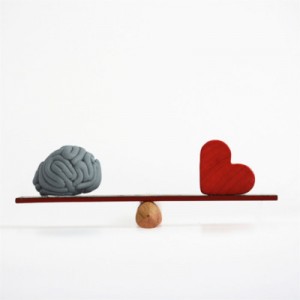The Five Tools That Help You Discern In Life: Part 2 “That Emotional Feeling”

After learning the first tool used in discernment, you are one step closer to being able to differentiate between a distorted thought and an accurate thought. The second tool in the process is your Emotions or Feelings. We can all admit at some point in our lives that our emotions have gotten the best of us. We become upset in a situation, for whatever the reason, and then our judgment or discernment of the experience becomes cloudy through emotions that are controlling our thoughts and perceptions. Your emotions are a key factor of who you are, how you think, and how you feel, but your emotions should not dictate your thoughts and choices in situations.
Your emotions as a tool are important because they drive you to think, “I am upset…why am I upset?” It urges you to look at the root cause within a situation to make you understand yourself so you can better determine how to respond, versus react. For example, if you feel angry and violated, you can think about the conversation that you just had with a coworker, identify that the person corrected you about something publicly and made you look foolish, and realize that your anger is because it was an inappropriate way to express their opinion to you.
If you base your decisions on your emotions and feelings it is likely that you will operate in unhealthy life skills and make irrational choices. The phrase “sometimes my emotions get the better of me” shouldn’t be a scenario you can identify with on a weekly basis. Your emotions should be an indicator when someone crosses your boundaries, disrespects you, or abuses you, but your emotions should not control your thoughts and behaviors.
When you find yourself in a situation and begin to feel upset and your emotions are on high alert, take a moment to understand yourself. After you can identify the cause of your feelings, you can better work through the situation. You can discern what has happened, clearly thinking through it, and make a healthy response which may include communicating with the other person using good life skills. When you use these discernment tools you can avoid misinterpreting and assuming faulty conclusions, and responding with irrational behaviors. Instead you become proactive, make healthy decisions, and use communication, or relationship skills to work through the situation until it is resolved.

Copyright © 2012 by Michele Fleming Ph.D.










Contact With Us